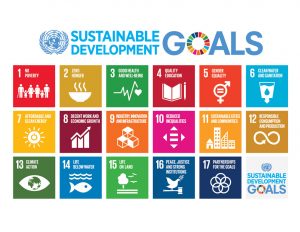THE Asia-Pacific region is expected to miss most of its sustainable development goals (SDGs) by 2030, with progress stagnating and even regressing, especially for climate action, the Economic and Social Commission for Asia and the Pacific (ESCAP) said.
“Overall, progress on the 17 SDGs is off track. Most targets are either stagnating or advancing too slowly, meaning we’re not moving at the pace needed to achieve our 2030 goals,” ESCAP Statistics Division Director Rachael Joanne Beaven said in a virtual forum on Tuesday.
In the 2025 Asia and the Pacific SDG Progress Report, ESCAP said that among the 117 specific targets for which there is sufficient data, only 16 are on track to be achieved by 2030, while 18 targets show “a negative trend in need of urgent reversal,” with most of these related to climate-related challenges and disaster risk.
Ms. Beaven said the region is lagging the global pace on climate action (SDG 13), decent work and economic growth (SDG 8), life below water (SDG 14), and partnership for the goals (SDG 17).
“On climate action, goal 13, the region is not just slow, it’s regressing. Instead of moving forward, we’re seeing setbacks that threaten our collective efforts to combat climate change,” she said.
Other targets of the Asia-Pacific that regressed were the share of renewable energy in the total energy mix and sustainable tourism, the report said.
“The region is regressing on climate action, undermined by the impact of disasters and the continuing growth of greenhouse gas emissions. Fossil fuel subsidies and unsustainable production patterns hinder progress towards a sustainable economy,” ESCAP Deputy Executive Secretary Lin Yang said.
Out of the 17 SDGs, the region has made “significant progress” in industry, innovation and infrastructure (SDG 9) and good health and well-being (SDG 3).
In the Association of Southeast Asian Nations (ASEAN), ESCAP reported that the region has regressed on three SDGs 2015 — climate action, life below water, and responsible consumption and production.
ASEAN is likely to achieve 11 SDGs by 2030 if the pace of progress is maintained. Three SDGs cannot be evaluated due to insufficient data.
“Data gaps persist in critical areas, particularly in gender equality (SDG 5) and peace, justice, and strong institutions (SDG 16),” Ms. Lin said.
The sufficiency SDG data in the region rose to 54% in 2024 from 47% in 2021, she added.
The report said that out of 169 targets, 50 cannot be assessed, and only 16 targets are on track to be achieved by 2030, with data on disability, migration, and rural communities remaining limited. — Aubrey Rose A. Inosante
